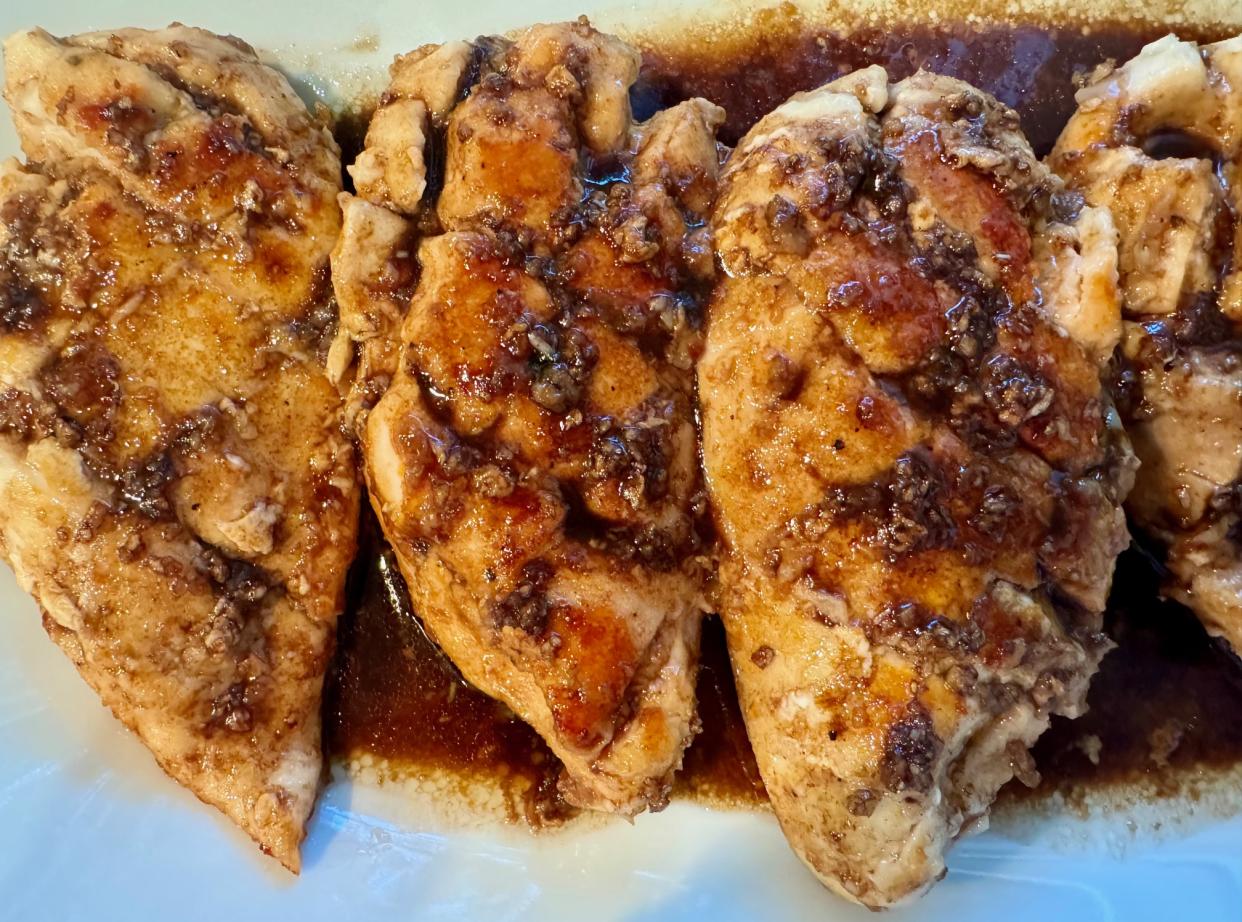Make some hard-boiled eggs, get stronger arms and other wellness tips this health editor swears by

Rachel, your friendly editor, here to share some of my favorite health and wellness tips. While I’m still holding on to the last precious days of summer, back-to-school season is already here, which means the scent of sunscreen is quickly being replaced by the smell of freshly sharpened pencils. Even if back to school isn’t on your radar, you still may want to end the summer on a high — and healthy — note. And I've got some wellness tips to make doing that a little easier. Looking for a protein-rich snack? Want a better way to get stronger arms? Need a quick self-esteem boost? I’ve got you covered.
What I’m doing…keep some hard-boiled eggs in your fridge
Nutritionist Keri Glassman, whom I’ve interviewed several times over the years, shares my “little obsession” with hard-boiled eggs. I know that she always keeps a bowl of them in her fridge, and for good reason: They’re packed with protein (more than 6 grams per egg) and are a solid source of vitamins A, D and B12. Hard-boiled eggs are my go-to snack on road trips and planes (I eat them quickly so as to not bother my seatmate!), along with a bag of Corn Nuts because … balance.
What I’m practicing…using positive affirmations for passwords
I know, I know: It’s hard not to roll your eyes at the mere mention of positive affirmations, but these phrases, which you can say to yourself or write down to get a little self-esteem boost, can work. Research shows they activate the brain’s reward system and can help you overcome negative thoughts. The key is to keep them specific and do them regularly. One trick I have for doing just that? I make my passwords self-affirming phrases. It’s an easy, low-stakes way of doing affirmations — and it also makes remembering my 385 passwords a lot easier (OK, I don’t really have that many passwords, but it feels like that sometimes).
What I learned…target your triceps
I genuinely enjoy weight training, which I try to do twice a week. It has so many benefits beyond muscle tone, from stronger bones to making it easier to do everyday tasks. But here’s what keeps me coming back: It’s an excellent stress reliever and it’s so empowering to lift weights. I’ve been doing strength training classes led by Peloton’s Rebecca Kennedy for over four years now and one thing that she frequently brings up is targeting your triceps — the trio of muscles that runs along the back of your upper arm. While the biceps tend to get all of the attention, Kennedy explains that the triceps are her favorite muscle and they actually make up two-thirds of your arm. So working them can really give your arms more definition and strength, something I think about when those overhead tricep extensions start to seriously burn.
What I’m trying…give yourself an extra 5 minutes
With the exception of flights, movies, parent-teacher conferences and important meetings, being on time for appointments isn’t exactly my strong suit. While I’m convinced time will one day bend to my will (my last name is Bender, after all), it sucks to be late and creates unnecessary stress. I follow clinical psychologist Leah Katz, who recently framed the benefits of not just being on time but being a bit early in a positive way that I found motivating: “One of the most underrated forms of self-care is giving yourself extra time to get places. An extra five minutes changes the entire experience and helps take your nervous system out of fight or flight and into regulation.” I’d never thought about being early as a form of self-care, but it’s something I’m working on.

What I made…honey balsamic garlic chicken
Already I’ve made this tasty chicken recipe (found on Pinterest) twice this week and rather than hoarding it, I've decided to share it. The sauce is a mix of honey, soy sauce, vinegar — I use balsamic — and chopped garlic. Cutting the chicken in a crisscross pattern allows for the sauce to really sink in (also, if you’re paranoid like me about making sure chicken is thoroughly cooked, it makes it easier to check). I paired it with asparagus and roasted small potatoes and it was *chef’s kiss.*
Cooking hack: When you’re measuring honey, which this recipe requires, put a small amount of cooking oil around the measuring spoon to prevent the honey from sticking. (Shout out to chef Michael Hayes who posted this genius tip on TikTok!)
A healthy chat with…parenting expert Dr. Becky
Like millions of other parents, I’ve been following clinical psychologist Becky Kennedy, aka Dr. Becky, for a few years now, taking in her pearls of wisdom so I can be an even better parent. One of my favorite tips? If a child knocks over a cup of juice or breaks something by accident, rather than yelling or laying on the blame, just say, “You didn’t mean for that to happen.” The look of relief on my kids’ faces — knowing we’re on their side and we can clean up the mess together — is priceless.
This week my twins went back to school, a time invariably marked by a mixture of excitement and stress. To help navigate this transition, I asked Dr. Becky — who recently released the new Good Inside mobile app, which offers age-based, personalized support for parents — for some helpful tips.
Q: How can parents better manage their anxiety around their kids going back to school?
A: When parents tell me that their mornings are rushed and hectic, I often feel as though their own needs are not being met. And so I ask them: “How many minutes do you need for yourself?” It doesn’t have to be a lot! For some parents, it’s five minutes to have a cup of coffee while sitting down. Then, when you’re setting your alarm just a little bit earlier, instead of thinking, “Ugh, I have to get up early,” you can say to yourself, “These are the minutes I’m going to have for myself.”
Q: What should parents do if their child or teen says they don't want to go to school?
A: If your kid comes to you and says they don’t want to go to school, start by validating, listening and looking to learn more. It is so powerful and important to meet “I don’t want to go to school” with “There is something about going to school that doesn’t feel good. I believe you. Tell me more.”
For most kids, when you validate their feelings you actually hear the story underneath them. It becomes “I don’t want to go to school because math is hard.” Now you can actually get to the core and figure out the root cause of the feelings.
Q: How can you help build up your child or teen's confidence?
A: We often think that in order to build up our kids’ confidence we need to make them “feel good.” So when our kid comes to us and says, “I’m nervous to go to school,” often our impulse is to say, “No, but you had such a great school year last year.” That actually lowers a kid’s confidence. The best tip I can offer to build confidence is to listen. To say to your kid, “I believe you,” “that makes sense,” or “I felt this way too.” You can then follow up with a message of hope. It’s not just “I believe you” but also “I believe in you.”


